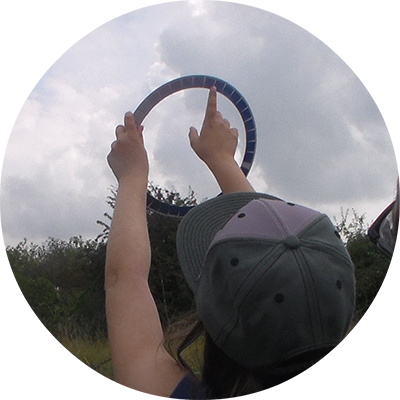Citizen Science in the Thames Estuary
About Citizen Science in the Thames Estuary
Artist Andy Freeman is leading public Citizen science workshops to investigate the traces of waste disposal and pollution on the 'unnatural' nature reserve of Two Tree Island in Leigh-on-Sea. Citizen science is a world wide phenomena that exists to empower people to monitor their environments, where scientific research is conducted by amateur or nonprofessional scientists.
The north bank of the Thames Estuary and its salt-marsh is the closest wilderness zone to London. An internationally important biodiverse habitat for sea mollusks, wild fowl and a vital fish nursery. Yet the 5 million visitors that come to Southend each year know very little about the cultures, species, genealogy that inhabit the Thames estuary. Nor do they notice the hundreds of thousands of containers moving up the flood tide bringing exotic items from China to Tilbury or the London Gateway. Goods increasing in value by the distance they travel from source, burning cheap bunker fuel and creating asthma all the way. The estuary is also a historic space of seafood, landfill sites, early dynamite factories, industrial exploitation and toxicity created by the Thames being used as the plumbing, and larder of London.
Sensors are increasingly creating smart seas and play an important role in this dualism as they try to reduce the estuary to a series of logics. They simultaneously assist in the exploitation and conservation of the estuary. They transmit live information about all aspects of the estuary from tidal flows, wind, humidity and the monitoring of pollution. Scientists examine this sense while studying the growth of cockles, barnacles, silt flows, fish stocks, preparing for the possibility of compensation for fisherman caught in a struggle to contest whether the dredging for the new container port is creating a loss in fish stocks or is responsible for coastal erosion. The unknowable super complex ecology of the Thames estuary is transfigured into
logics, a structuring of information into knowledge, so that authorities can make the estuary governable for they imagine are stake holders. In this way knowledge gathered from the Thames Estuary has a complex relationship to the powers that manage it caught in an endless dualism. Sensors extract information by verifiable methods, which are then abstracted into metrics to be presented at planning meetings or in a legal sphere.
Citizen science offers a way to question thesemethods and for the public to form and disseminate their own understandings of the environment.
Recent workshops:
Fluids and Mud Science (citizen science workshop 1)
Date: Saturday 15 August 2015, 10am – 5pm
Meeting Point: Fishermens Chapel, New Road, Leigh-on-Sea, SS9
Booking: please email admin@artscatalyst.org (please note these workshops are specifically for people local to Essex)
Investigate Two Tree Island in this day workshop led by Andy Freeman with Two Tree scientific expert Dr Mark Scrimshaw (Reader in Environmental Chemistry at Brunel University) to explore the use of scientific testing outdoors. Participants will learn about and make observations of a range of gases and contaminants found in the air and water in the Thames estuary using testing kits. Observations will be geotagged using mobile phones and then uploaded to a custom digital map of the locality and shared online.
Wildlife and Not So Wild Life (citizen science workshop 2)
Date: Saturday 22 August 2015, 10am – 5pm
Meeting Point: Fishermens Chapel, New Road, Leigh-on-Sea, SS9
Booking: please email admin@artscatalyst.org (please note these workshops are specifically for people local to Essex)
Andy Freeman and Mark Scrimshaw with local reserves manager Marc Outten (Essex Wildlife Trust) lead this workshop, which will bring together wild life spotting, digital technologies and scientific testing of the elements. Get to know your fellow organisms, animals and local inhabitants of this complex nature reserve, including the people and industries that surround it.
